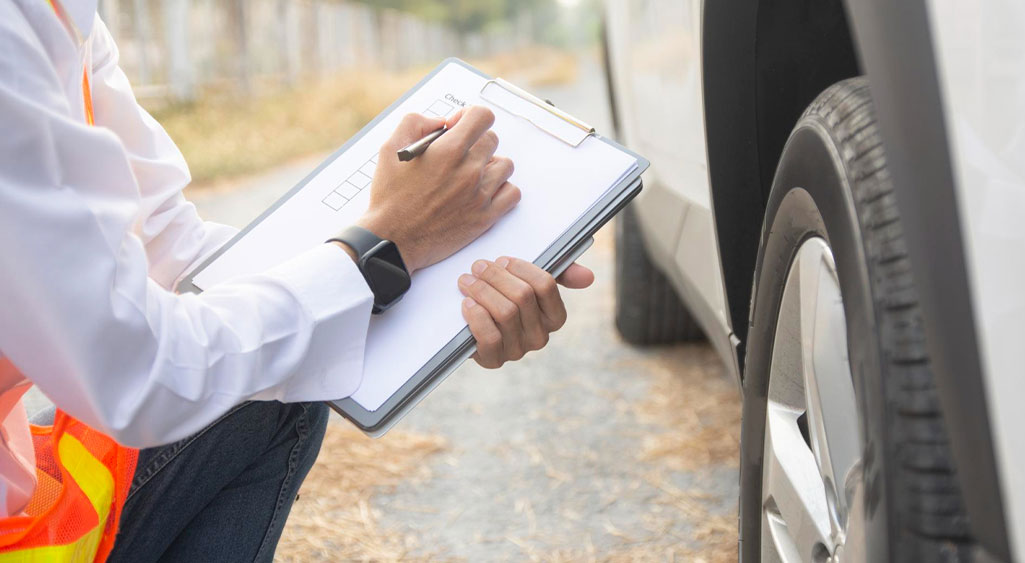
 Request FREE consultation - 1866-758-4529
Request FREE consultation - 1866-758-4529 
Trucking companies and even owner-operators are typically covered under commercial liability policies with limits that exceed those of automobile insurance policies. The insurance company for the truck driver and the motor carrier is sophisticated in defending commercial vehicle accidents effectively.
Understanding which evidence may be available and how it could help you win a truck accident case, along with conducting an early investigation, is crucial to a successful truck accident claim.
Without a doubt, the most vital evidence in a personal injury claim stemming from a truck crash is evidence that shows a violation of the Federal Motor Carrier Safety Regulations by either the driver or the motor carrier. Some of the most common violations of safety regulations include companies allowing drivers to exceed the permitted hours of service and truck drivers falsifying logbooks.
The move toward digital logbooks was a significant step toward improving safety on America’s highways. It was not uncommon for truck drivers to keep a false logbook, allowing them to work hours most convenient to them, disregarding safety rules. While the move toward computerized data has made it more difficult to cheat on logbooks, drivers and unscrupulous companies can still skirt the rules.
Many avenues for discovering logbook violations are not shown in the official books. Most of these involve tracking the location of the truck or the driver via cell phone records or GPS service related to the vehicles.
Accident-specific data is downloaded from the tractor itself, providing vital information such as the speed of the big rig before the accident, braking activity, and whether turn signals and flashers were used. Computer data should be obtained as soon as possible after the wreck. Not all commercial trucks contain computer data available for download. However, most recent model years provide a wealth of critical information for attorneys.
Some of the larger trucking companies, as well as garbage trucks, contain in-cab video cameras that show how accidents occur without a fudge factor. Having a video camera that shows the truck driver’s actions and the activities of the other vehicle can make or break a case. Motor carriers, particularly the larger ones, favor the use of video as a safety training and enforcement measure. As often as not, the evidence may show that the accident was the fault of the other driver, not the trucker.
Further video may be available from businesses or homes near the crash site, including surveillance footage. Ensuring that you have all video evidence is crucial for truck crashes involving severe injuries or fatalities.
Inspecting the tractor and trailer after a collision will reveal the rig’s safety condition. Sometimes, the accident or the injuries can be attributable to a defective rig or improper maintenance procedures. Trucking companies must maintain their vehicles and ensure safe operating conditions in compliance with safety rules. Truck drivers are required to inspect their vehicles daily and report any deficiencies to the company.
In rear-end truck accidents, often the braking capacity of the truck is examined. Improperly maintained brakes hurt the stopping distance of big rigs. Likewise, the condition of the tires and even how the loads were secured can be essential at times. The inspection of the truck should occur before the trucking company puts the rig back in service.
Background information should always be obtained on the driver in cases involving severe injury or loss of a loved one. Prior accidents, drug use, DWIs, criminal records or other tickets may become meaningful evidence of the driver’s truthfulness or qualifications to be a professional driver.
The trucking company must maintain a driver file that shows the professional driver’s qualifications have been met. The driver qualification file must include information such as prior accidents, incident reports, and the background check required for the company to hire the driver.
Trucking companies and their insurers often have quick-response teams on the scene within hours of notification of a severe accident. These teams include lawyers, experts, and investigators with experience in finding evidence that insurance company lawyers can use to shift responsibility for the accident away from the driver and onto others. The truck drivers are instructed to call immediately after a crash. It is a rare situation where the victim of the accident is not starting from behind.
Persons injured in a trucking accident or families who have lost a loved one should research attorneys soon after the crash. Research should include more than the claims of the attorney on their website and should consist of what other attorneys in the community know about the individual you are considering. Ranking agencies may have a financial interest in those they rate. Consumers should look for peer review ratings and disregard awards that sound critical and are based solely on the amount paid to the entity.
Online reviews can be helpful information and should be scrutinized before relying upon the data. If an attorney has hundreds of reviews, one would have to consider whether the attorney operates a “mill practice,” which settles cases quickly and cheaply, or whether the reviews may not be genuine.
Spending time researching the attorney you are considering before hiring that lawyer is essential to achieving the best outcome for your case. If you hire an attorney without doing your homework, you may find you have retained the wrong lawyer, and changing horses during the race complicates the case.
Contact the Texas truck accident lawyer at 281-893-0760 for a no-obligation consultation.
Truck Accidents and Preserving Evidence
Critical Evidence to Win 18-Wheeler Accident Cases
The Significance of Truck Drivers’ Logbooks in Truck Accident Lawsuits
Interesting Large Truck Accident Statistics